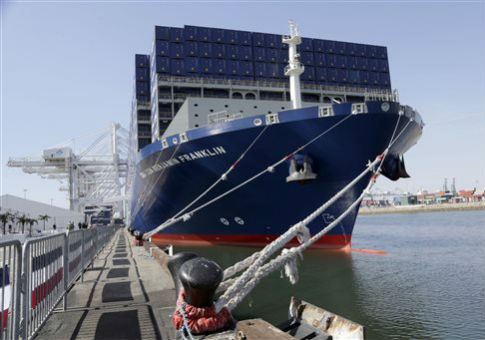After a tumultuous two decades, statecraft dominates foreign policy discussions in the United States. After the Iraq War and the decline of American credibility under President Obama, understandably we want to know how to make U.S. foreign policy more efficient and effective.
Robert Blackwill and Jennifer Harris contribute to this discussion in War by Other Means. Blackwill and Harris ask readers to remember the root of America’s status as a superpower: its economy. They challenge us to view that economy as a tool for foreign policy as well as a means to domestic prosperity.
To convince us of this view, the authors detail how competitors of the United States employ geo-economics to further their foreign policy agendas. Examining the political calculations and geo-economic tools employed by China and Russia, they show how these governments use a combination of economic carrots and sticks to pursue national objectives. The formula is simple: Countries that conform to the wishes of the Kremlin or Politburo receive economic rewards, while those that resist face economic penalties. European nations that displease Putin, for instance, have been denied access to important energy supplies.
Of the many examples the authors use in their assessment of Chinese and Russian geo-economics, two stand out.
First, in China’s relationship with Taiwan we see how the Politburo showers lucrative trade opportunities on Taiwan when it accepts political accommodations away from independence but restricts Taiwanese business when the country pursues a pro-independence agenda. China has calculated that its political power over Taiwan will increase alongside its economic power. If it makes itself indispensable to the economic health of Taiwan, it can gain an effective veto over political efforts to create distance between the two countries. "From Beijing’s perspective, the more economic interdependence there is between the two sides, the less likely Taiwan’s bid for independence becomes.’’ This is annexation by trade, and it can be done on the sly without roiling the region.
Second, in Russia’s evolving relationships in the Middle East we see how Vladimir Putin balances the use of Russian power with offers of enticements like Russian nuclear technology. As the authors note, "for states on the receiving end of this Russian nuclear technology, it is cheaper and faster than Western alternatives and unlike the United States and other western partners it comes unencumbered by certain conditions on nonproliferation.’’
Of course, China and Russia are not the only states to exploit geo-economics, they are just the most dangerous. Blackwill and Harris show how other states—some powerful, some weak—employ geo-economic strategy. Saudi Arabia, for instance, predicates aid packages on the condition they will be used to purchase goods from certain suppliers, such as favored governments—in that way, the Saudis curry favor with the supplier and the recipient of the aid package. As these examples show, geo-economic strategy is not always about the direct recipient of the carrots and sticks. When China invests in Pakistan, it does so knowing that, "as Pakistan remains one of the world’s most skilled countries at causing problems for the United States, China’s significant leverage over Islamabad marks an important if indirect source of leverage for Beijing vis-à-vis the United States.’’
We are supposed to see these crafty uses of geo-economics as reasons for the United States to apply more economic power abroad. The authors are convinced that a more aggressive application of national economic power would yield significant benefits for the United States: a more stable Egypt through increased business ties, for instance, and a Poland independent from Russia through the diversification of its energy portfolio. The skillful application of tools that are already being used by America’s adversaries has the potential to rebalance areas of the world toward freedom and away from authoritarianism, all in ways that are unlikely to provoke military conflicts.
Ultimately, while Blackwill and Harris are confident in geo-economic strategy, they are realistic about its potential. Geo-economic statecraft is no elixir. It is simply an untapped opportunity. "Efforts to size up the relative utility of a geo-economic approach should be judged by the same measure used to weight any other form of statecraft: against the next best alternative.’’ Although this thoroughly researched book is designed more for students of international relations and policymakers than casual readers, it is worth buying. Confident about the American mission in the world, the book is a lesson about how creative thinking can promote our interests without risk to blood and treasure.
